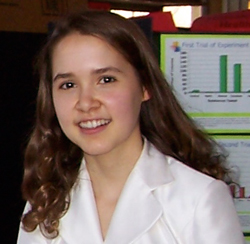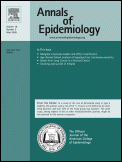Whites, Hispanics more at risk than African Americans
May 1, 2009
Getting fewer than seven hours of sleep a night puts people at risk for Type 2 diabetes, according to a study by researchers at the University of South Carolina’s Arnold School of Public Health.
The study is the first to examine the role that measures of insulin sensitivity and acute insulin response – important diabetes risk factors – have on the sleep-diabetes relationships. Insulin, a hormone, is responsible for moving sugar from the bloodstream into the body’s cells. Insulin resistance becomes a risk factor for diabetes because the body’s cells have a diminished capacity to respond to insulin.
Even when the researchers adjusted for insulin-related factors – in addition to obesity and family history of diabetes which are well-known risk factors for diabetes -- short sleep was found to be an independent predictor for Type 2 diabetes.

Debbie Beihl
The Arnold School study found that insulin sensitivity and acute insulin response do not appear to impact short sleep and diabetes risk, said Dr. Angela Liese, Arnold School researcher and associate professor in the department of epidemiology and biostatistics.
“Whites and Hispanics who get short sleep were found to have a greater risk for developing Type 2 diabetes than African Americans,” said Liese. “Some studies have suggested that short sleep is not a risk factor for diabetes. This study shows that it does.”
The study’s results are published in the May issue of the Annals of Epidemiology.

Working with Liese’s research team, Debbie Beihl, the paper’s lead author and a student at Southern Adventist University, analyzed five years of data from the Insulin Resistance Atherosclerosis Study. Among the 900 diabetes-free participants, who ranged in age from 40 – 69 at the beginning of the study, 146 developed Type 2 diabetes.
“Our study adds to the growing body of research on the role that sleep has on diabetes,” Beihl said. “More research is needed among minority populations.”
Visit http://www.sciencedirect.com/science/journal/10472797 to learn more about the study and http://www.sph.sc.edu for information on the Arnold School of Public Health.



_01.jpg)
_02.jpg)